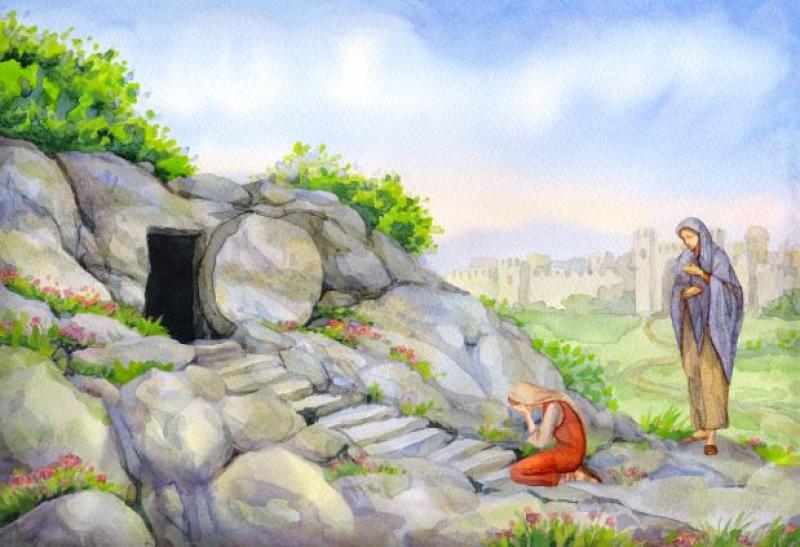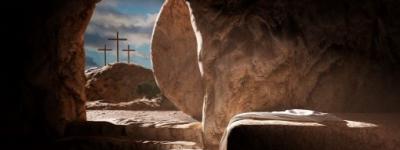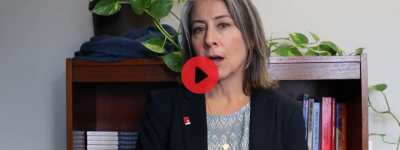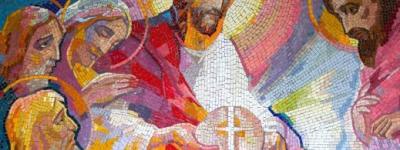
April 17, 2022 | Sr. Kathy Brazda, CSJ | Today's Readings
"For they did not yet understand the Scripture
that he had to rise from the dead." (Jn. 20:9)
On Easter Sunday morning, we hear the Gospel story of Mary of Magdala, James, and John going to the tomb of Jesus, only to find it empty, with the stone rolled away and burial cloths moved aside. Imagine their surprise and amazement at this site. Imagine how their worldview was shifted, even shattered.
From the very beginning, Easter has celebrated the disruption of complacency.
A few weeks ago, through an experience organized by Catholic Mobilizing Network, I was able to join faith leaders across the country who share a passion for ending the death penalty and promoting restorative justice on a pilgrimage to Selma and Montgomery, Alabama. There we visited some of the sacred sites of the civil rights movement — places where the first stones that blocked civil rights were moved away, beginning to clear a path forward.
Walking the Edmund Pettus Bridge in Selma, remembering John Lewis, Martin Luther King, and others who marched in those days, I stared down into the muddy waters and heard the wind whispering through the trees. I wondered what hidden secrets the land held.
Visiting the memorial site of Viola Liuzzo, a white woman from Detroit who came down to Alabama to register voters in 1965 and was murdered on the highway, I held in my heart the martyrs of the civil rights movement who died promoting equality and voting rights.
Viewing the exhibits at the Legacy Museum: From Enslavement to Mass Incarceration, I learned more of the history of slavery and racism in America, and I felt the disruption of my complacency and white privilege.
Walking through the National Memorial for Peace and Justice, a monument that remembers men, women, and children who were victims of racial terror lynching and racial violence between 1877-1950, I was grateful that the “cloths” that veiled this horrific part of our country’s history were removed and the truth was revealed.
Though many stones have been removed that prohibited people of color full participation in society, we still have a long way to go. People of color make up an uneven percentage of those who are incarcerated and who receive the death penalty in the U.S., and we are still in a struggle to protect voting rights.
On this day of resurrection, we are offered the hope and promise of Christ, that stones of oppression can be removed and that cloths which hide ugly truths can be taken away. In following the Risen One, may we be moved out of our complacency and towards a more just and peaceful world.







